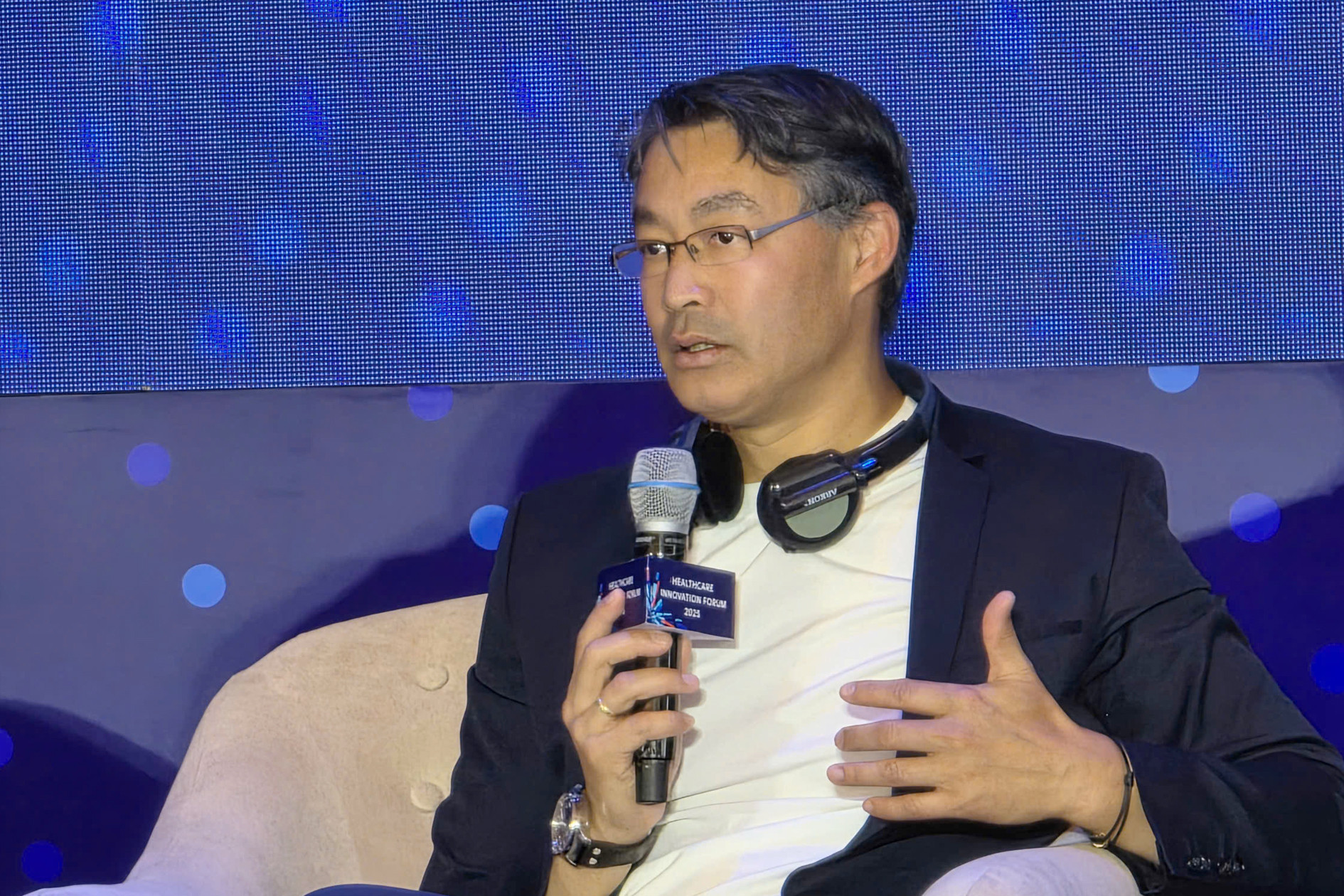Former German Vice Chancellor Philipp Rösler believes Vietnam can develop a robust pharmaceutical industry not by relying on traditional chemical infrastructure, but by embracing digital technologies and innovation.

Speaking at the Healthcare Innovation Forum on June 6, 2025, Darrell Oh, Chairman of Pharma Group, said that Vietnam’s path to prosperity requires both a healthy population and a strong economy.
He praised Vietnam’s strategic decisions, particularly Resolution 57, which places innovation at the heart of national development.
“We view the digital preventive healthcare system as a key foundation. Vietnam is building smart cities, but this must be integrated with health data. By 2030, Vietnam must establish medical records for every citizen. The country is targeting a top-three position in R&D, including epidemic forecasting and drug stockpiling. With a goal of over 80% telehealth coverage, this is a strong indicator of progress,” Oh said.
Dr. Philipp Rösler, former German Minister of Health and Vice Chancellor, shared a personal story about being adopted by a German family and pursuing a lifelong passion for medicine. He later served as Germany’s health minister, working to ensure national healthcare.
“In Germany, about 5% of GDP - approximately USD 150 billion - is spent on over-the-counter medication. So, can Vietnam make its vision for public health a reality? We are living in the fourth industrial revolution. Everything is moving fast, and if we don’t act quickly, we miss our chance. This new era offers more opportunities than ever before. We don’t need a legacy in modern chemistry to develop pharmaceuticals; instead, we must digitize the industry - and FPT is leading the way,” Rösler said.
“The future of pharma depends on mastering AI. We can now simulate drug effects on computers, personalize treatment using various factors, and care for people effectively even without a long-standing pharmaceutical history. That is Vietnam’s opportunity,” he emphasized.
Even developed countries like Switzerland, the U.S., and Germany have been slow to fully digitize healthcare, Rösler noted. In Germany, building a national patient data system took 10 years and only became operational in 2025. AI-powered simulations now make research faster, eliminating the long wait for clinical sample sizes. Vietnam can capitalize on these global advancements by leveraging technology to turn them into local opportunities.
Rösler also highlighted Vietnam’s Resolution 68, which promotes the private economy. He urged that innovation must go beyond ideas - it must be brought to market.
David Duong, Global Healthcare Director at Harvard Medical School, echoed the sentiment that technology will drive breakthroughs in Vietnam’s pharmaceutical sector. He emphasized the need to create favorable conditions for the private sector to apply AI widely and make it accessible to the public.
Vu Anh Tu, FPT’s Chief Technology Officer, stated that technology is solving many pressing challenges. “We need a leap in digital innovation, AI, and telehealth to better care for our population. Integrating AI with data from Project 06 will enable advanced analysis. The partnership between pharmaceutical and tech companies will yield significant societal benefits,” he said.
Tu added that FPT is ready to collaborate with both startups and large corporations to tackle critical national issues and is also committed to working with leading global research institutes. This hybrid model will harness both domestic and international resources to accelerate Vietnam’s healthcare sector.
Thai Khang